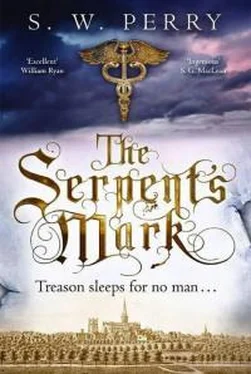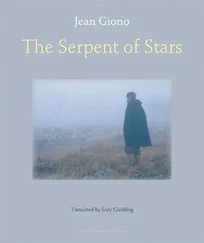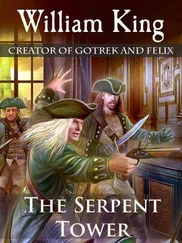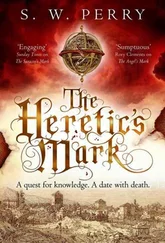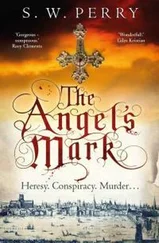Nicholas looks up at his father with moistening eyes. He snorts back the tears, frightened that he’s about to weep in the presence of a man who has always seemed immune to sentiment. ‘That’s how it was when I tried to save Eleanor and our child,’ he says thinly.
His father lays a hand on his son’s shoulder. ‘I know you well enough, Nick. You would have moved heaven and earth, if you but could. But sometimes, boy, it’s just the way God wants things to happen.’
Nicholas gives a cruel laugh. ‘Oh, I’ve heard that said before. Did you know the great Martin Luther – fount of this new religion we’re all supposed to embrace so unquestioningly – tells me in his writings that God designed women to die in childbirth! He says it’s what they’re for! Well, for the record, I’ll have none of such knowledge .’
‘Parson Olicott would say that what you learned at Cambridge is God’s wisdom revealed through man,’ his father replies, caution in his runnelled face. ‘He’d say our Lord would offer us no false remedies. He’d call you a blasphemer for suggesting otherwise.’
‘The remedies Parson Olicott gets called upon to administer, Father,’ says Nicholas, running his fingers through a tangle of hair that the rain has flattened to his scalp like black ribbons discarded in a ditch, ‘are for ills of the soul, not the body.’
‘But if the soul is in good health, does not the body follow?’
Though a humble farmer, a man who only learned to write when he was forty, his father has just summed up the current thinking of the College of Physicians in a nutshell.
‘That’s what we’ve thought for centuries,’ Nicholas says. ‘That’s what the books tell us: bring the body into a balance pleasing to God. They instruct us to bleed the patient from a particular part of his body if the sanguine and choleric humours are out of kilter; purge him if the melancholic humour suppresses the phlegmatic; read the colour of his water – and always make sure the stars and the planets are in favourable alignment, before you do any of it. Then present the bill. And if it all goes wrong, say it was God’s will – or the stars were inauspicious.’
His father kneels and stares into his son’s eyes with the stoic acceptance of the cycle of life and death, of hope and disappointment, that a man who relies on the fickleness of the earth for his survival must learn. His face looks carved out of holm oak. You’re barely fifty, thinks Nicholas, yet you look like an old man. Is it the toil? Or have my own actions aged you? He settles for what his mother and his sister-in-law, Faith, have always claimed: grubbing away at the earth makes Shelby men look older than their years.
‘Listen to me, boy,’ his father says with a surprisingly gentle smile that looks out of place on such a hard-used face. ‘Thrice in my lifetime I’ve heard Parson Olicott tell me I’m to forget my religion and believe in a different one. Every Sunday – until I was about fourteen – he’d tell me the Pope was a fine Christian man, an’ that for my spiritual education I was to study the pictures of the saints in St Mary’s…’
Nicholas wonders what that weathered stone Saxon barnacle, where the Shelby family now have their own pew almost within touching distance of the altar, has to do with his present agony; but he’s learned long ago that when his father embarks on one of his homilies it’s best not to interrupt.
His father continues. ‘Then one Sunday shortly after King Henry died, I hear Parson Olicott announce, “King Edward says the Pope is the Antichrist!” Well, you could have knocked me down with a feather. After the sermon, Parson Olicott hands us lads a bucket of whitewash.’ He makes a painting gesture with one hand, the fist clenched. ‘“Cover up those paintings of the saints,” orders old Olicott, “’cause now they be heretical!”’
Nicholas has stared at the plain walls of St Mary’s every Sunday for as long as he can recall, usually with intense boredom. It has never occurred to him that his father was one of those who’d done the whitewashing.
‘Took us lads ages, I can tell you,’ Yeoman Shelby says. ‘But the next thing I know – around the time I was paying court to your mother – there’s Parson Olicott proclaiming that Edward is dead, Mary is queen, and the Pope is once more our father in Christ. Imagine it!’
Nicholas indulges his father and imagines.
‘“Change the prayer book!” says Olicott. “Bring out the choir screens again” – we’d hidden them in Jed Arrowsmith’s barn. “Scrub off the whitewash! The bishops what made us paint over those saints are all now heretics and must burn for it!”’ Yeoman Shelby sighs, as though all this variable theology is beyond the understanding of a simple man. ‘To tell the truth, Nick, when we got the whitewash off, I was surprised those paintings had survived. But survive they had. Stubborn buggers, those Catholic saints. Didn’t last, of course. Barely five years on, Bloody Mary is dead, we’re all singing hosannas for Queen Elizabeth, and the Pope is the Devil’s arse-licker again. And what’s old Olicott preaching?’
‘Fetch the whitewash?’
His father nods. ‘Exactly. What I’m saying to you is this: there ain’t ever such a thing as certainty , boy. Maybe in the next world, but not in this. So don’t you worry your young head about whether or not your old father can handle it when his clever physician son has a crisis of belief. Because what really grieves us, Nick – what really makes us weep – is that when your world was turned on its head, when you had need of us most, you didn’t come home.’
For a moment there is only the slow dripping of water on the pressing stone. Then Nicholas is in his father’s arms, his chest heaving like a man drowning, sobbing with a child’s bewilderment at unjustified injury.
Outside, the rain is starting to ease. The old thatched houses of Barnthorpe are beginning to take on their newborn, sharper forms. When the two men walk back to the Shelby farmhouse, Nicholas feels somehow lighter. Certainly more resolute. Confession has done him good – even if it’s only a partial confession.
Because there’s something else Nicholas hasn’t admitted to his father. He hasn’t told Yeoman Shelby that a part of his son – a small part to be sure, but even the smallest canker can still presage a greater infection – now belongs to one Robert Cecil.

‘Careful now, Ned. Master Nicholas is not here to set your bones if you fall!’
Bianca Merton grasps the ladder with both hands, letting her weight bear down on her left foot, which is set firmly on the bottom rung. Above her, Ned Monkton sways precariously as he leans out over the lane. He looks like a bear that’s climbed to the top of a maypole and got stuck there. Cursing, he tries to attach the newly made board beside the sign of the Jackdaw. It takes him a few minutes and an excess of profanities, but before long the new banner is in place: the unicorn and the jackdaw swaying side-by-side in the breeze. Southwark now has a tavern and an apothecary, all in one. You can forget your tribulations with a quart of knock-down, and get colewort and hartshorn for the resulting hangover, in the same place.
‘Don’t that look a fine sight?’ says Rose, Bianca’s maid, as she admires the scene – though whether it’s the apothecary’s sign or the sight of Ned’s hugely muscular legs wrapped around the ladder is somewhat unclear to Bianca.
‘I wish I could have seen the faces of the Grocers’ Guild when they signed my licence,’ Bianca says, sweeping her proud, dark hair from her brow. ‘They’ve been trying to shut me down since the day I arrived. And now I’m legal! Who would have imagined it? Bianca Merton of the Jackdaw, a licensed apothecary!’
Читать дальше
